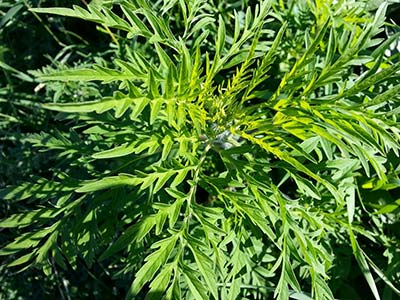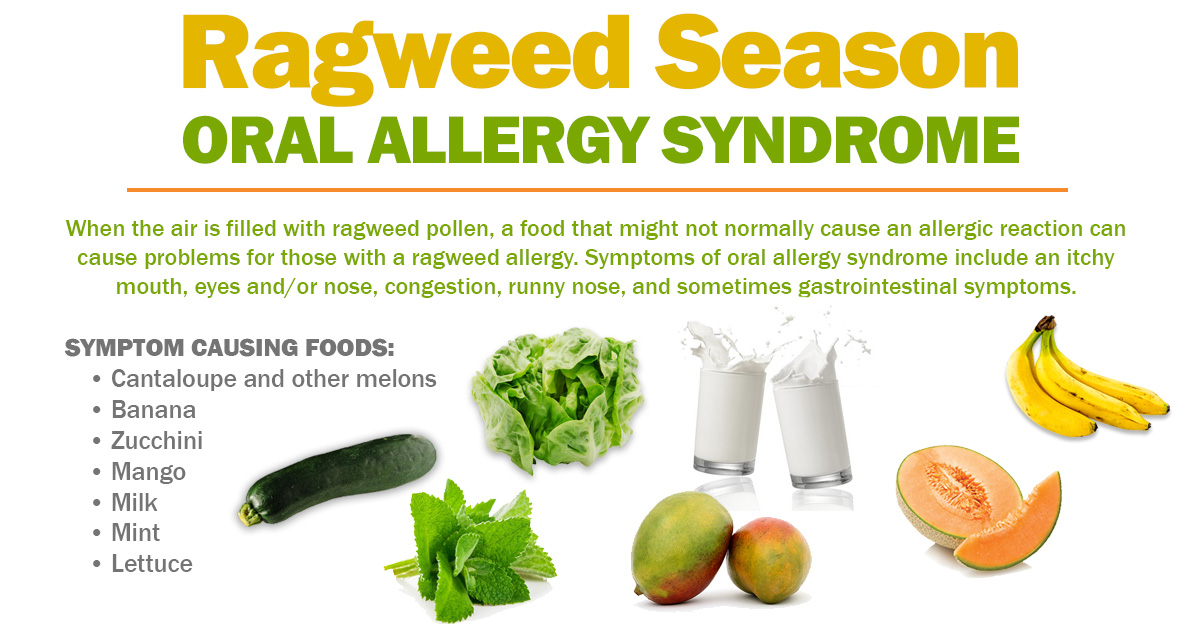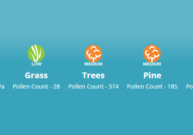Ragweed Allergy
Late summer and early fall brings with it a drastic increase in illness due to ragweed allergy — feeling to some like a nasty cold, sinus infection, or as some would say, the feeling of “getting hit by a truck.” Of the people who suffer from seasonal allergies, 75% are allergic to ragweed, making it one of the main causes of hay fever/allergic rhinitis.
 Ragweed survives for only one season, but a single plant produces up to 1 billion pollen grains during its short life. A recent EPA study shows the length of ragweed season is increasing — up to a month in some areas — due to climate changes.
Ragweed survives for only one season, but a single plant produces up to 1 billion pollen grains during its short life. A recent EPA study shows the length of ragweed season is increasing — up to a month in some areas — due to climate changes.
Ragweed allergy symptoms include:
- Sneezing
- Nasal congestion
- Headache
- Eye and throat irritation
- Aggravated asthma symptoms
Ragweed is a common, soft-stemmed weed with 17 different species, all ranging in size, height, color and flowering patterns. Though the several species may look slightly different, they all produce high amounts of pollen.
Oral allergy syndrome
Those with ragweed allergy may also feel their mouth or throat itching when eating certain foods, referred to as oral allergy syndrome. Because of the similar compounds between the ragweed pollen grain and raw fruits and vegetables, these foods may cause a reaction when ragweed pollen is present:
- Cantaloupe
- Banana
- Zucchini
- Mango
- Beans
- Celery
- Hazelnuts
- Potatoes
- Various other foods
Peeling or cooking the fruits and vegetables can reduce reactions during ragweed season.
Ragweed + Mold is a dangerous combination
Another complication of ragweed allergy is all about timing. Increased mold counts tend to surface at the height of ragweed season. This “one-two punch” can create added issues for those with allergies to both, and can be dangerous for asthmatic patients, leading to one of the worst times of the year for strong reactions. Treating the cause of all offending allergens can reduce symptoms and reactions.
How can allergy drops help with ragweed allergy?
Allergy drop treatment can desensitize the body to ragweed by introducing the body with gradually increasing doses of ragweed. After using allergy drops for an extended period of time, the body learns to tolerate ragweed; it recognizes it, but no longer reacts to it.











